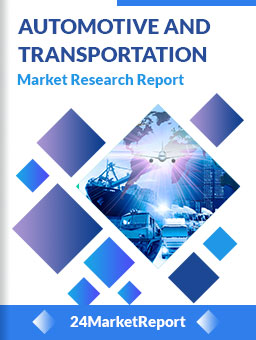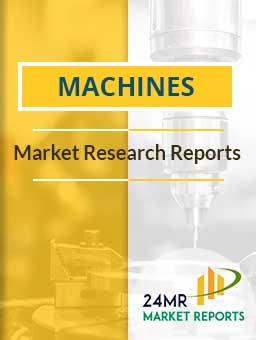
Download FREE Report Sample
Download Free sampleMARKET INSIGHTS
Global Modified Wheels market size was valued at USD 2.6 billion in 2024. The market is projected to grow from USD 2.8 billion in 2025 to USD 4.5 billion by 2032, exhibiting a CAGR of 8.3% during the forecast period.
Modified wheels are aftermarket automotive components designed to enhance vehicle performance, aesthetics, or both. These wheels undergo material, structural, or design modifications from standard OEM versions, including lightweight alloys, forged constructions, and custom finishes. Key categories include one-piece, two-piece, and three-piece forged wheels - with two-piece designs currently dominating 41% of the market due to their balance of strength and customization potential.
The market growth is primarily driven by increasing vehicle customization trends and rising motorsports participation globally. Europe currently leads with 37% market share, supported by strong automotive aftermarket culture, while North America follows closely with high-performance vehicle adoption. Notably, ordinary passenger vehicles account for 51% of applications as consumers increasingly prioritize both style and performance in daily drivers. Recent industry developments include ENKEI's 2023 expansion of its forged wheel production capacity in Thailand to meet growing ASEAN demand.
Rising Automotive Customization Trends Fueling Market Expansion
The global modified wheels market is experiencing robust growth driven by increasing consumer preference for vehicle personalization. Over 65% of new car buyers under 35 years prioritize aesthetic modifications within the first year of ownership, with wheels ranking among the top three customization choices. This trend is particularly strong in Europe and North America where the aftermarket modification culture is well-established, accounting for nearly 60% of all wheel modifications worldwide. The availability of diverse materials like forged aluminum and carbon fiber, coupled with advanced manufacturing techniques, enables manufacturers to offer lightweight yet durable wheel solutions that cater to both performance enthusiasts and style-conscious consumers.
Performance Vehicle Segment Driving Premium Wheel Demand
To know more about market statistics, Download a FREE Sample copy
The sports and luxury vehicle segment, comprising approximately 28% of the global modified wheels market, continues to be a key growth driver. High-performance alloy wheels can improve vehicle dynamics by reducing unsprung weight by 15-20%, directly enhancing handling and fuel efficiency. Furthermore, the global luxury vehicle market is projected to grow at 5.8% CAGR through 2028, creating sustained demand for premium wheel solutions. Motorsport regulations in series like Formula 1 and GT racing frequently influence commercial wheel designs, with technological innovations trickling down to consumer products within 12-18 months of track deployment.
➤ The racing wheel segment has seen particular growth, with 22% of modified wheel buyers citing track-day compatibility as their primary purchase motivator.
Additionally, the emergence of wheel customization configurators through augmented reality applications has revolutionized the purchasing process, allowing consumers to visualize modifications before purchase while significantly reducing return rates.
Stringent Regulatory Standards Limiting Product Innovation
The modified wheels industry faces significant regulatory hurdles across key markets. European Union's Whole Vehicle Type Approval (WVTA) regulations require extensive testing for aftermarket wheels, with compliance costs averaging $25,000-$40,000 per wheel design. These regulations mandate rigorous impact, fatigue, and radial load testing that can extend product development cycles by 3-5 months. In North America, the Department of Transportation's stringent safety standards have led to nearly 12% of imported wheel modifications being rejected annually due to non-compliance with load rating or material specifications.
Economic Sensitivity Impacting Replacement Cycles
As discretionary purchases, wheel modifications demonstrate high elasticity to macroeconomic conditions. During economic downturns, the average replacement cycle for aftermarket wheels extends from 3.2 years to over 5 years. The market also faces challenges from rising raw material costs, with aluminum prices increasing approximately 18% year-over-year, directly impacting manufacturing margins. Furthermore, the growing popularity of leased vehicles (accounting for 35% of new car acquisitions in developed markets) limits modification potential due to lease agreement restrictions.
EV-Specific Wheel Innovations Creating New Market Segments
The rapid electric vehicle adoption presents significant opportunities, with the global EV fleet projected to reach 240 million units by 2030. EV-specific wheel requirements differ substantially from conventional vehicles, with need for improved aerodynamics (potentially reducing drag by 3-5%) and weight optimization to maximize range. Several manufacturers have begun developing bespoke EV wheel systems incorporating integrated sensors for real-time pressure and temperature monitoring–a feature demanded by 43% of premium EV buyers. The requirement for specialized wheel designs in electric commercial vehicles is particularly promising, given their expected 12% annual growth rate through 2032.
Emerging Markets Show Significant Growth Potential
Asia-Pacific represents the fastest growing regional market, with China and India projected to contribute 38% of total market growth through 2032. Rising disposable incomes in these markets have increased the premium vehicle parc by 19% annually, while local manufacturing improvements have reduced import dependency from 65% to 41% over the past five years. The increasing popularity of automotive enthusiast communities in Southeast Asia, particularly in Thailand and Indonesia, has created new demand segments willing to spend 15-20% of vehicle value on premium wheel modifications.
Counterfeit Products Undermining Market Integrity
The modified wheels sector faces significant challenges from counterfeit products, estimated to comprise 8-12% of the global aftermarket. These substandard replicas not only compromise safety but also erode brand value, with major manufacturers reporting 5-7% revenue loss annually to counterfeit operations. The problem is particularly acute in online marketplaces, where nearly 30% of "discounted" branded wheels fail material certification testing. Combating this issue requires sophisticated authentication technologies and increased cooperation with e-commerce platforms, with leading brands now investing approximately 2-3% of annual revenue in anti-counterfeiting measures.
Supply Chain Disruptions Impacting Product Availability
Global supply chain volatility continues to challenge manufacturers, with average lead times for specialized alloys extending from 8 weeks to 22 weeks in recent years. The industry's reliance on specific aluminum and magnesium suppliers creates vulnerability, as evidenced by the 17% price surge following recent geopolitical tensions. Furthermore, shipping container shortages have increased logistics costs by 35-40%, particularly affecting manufacturers serving international markets. These disruptions have prompted domestic sourcing initiatives, with North American and European producers increasing local material procurement by 28% since 2022.
Two-Piece Forging Segment Dominates Due to Superior Strength and Lightweight Properties
The market is segmented based on type into:
One Piece Forging
Two-Piece Forging
Three Piece Forging
Alloy Wheels
Others
Ordinary Cars Segment Leads Due to High Consumer Demand for Aesthetic Upgrades
The market is segmented based on application into:
Ordinary Car
Racing Car
Commercial Vehicles
Off-Road Vehicles
Aluminum Alloy Segment Prevails Due to Optimal Balance of Weight and Durability
The market is segmented based on material into:
Aluminum Alloy
Magnesium Alloy
Carbon Fiber
Steel
Aftermarket Segment Dominates Due to Customization Preferences
The market is segmented based on sales channel into:
OEM
Aftermarket
Performance and Aesthetics Drive Strategic Competition in Modified Wheels Sector
The global modified wheels market features a moderately consolidated competitive landscape where established automotive aftermarket brands compete with specialized wheel manufacturers. ENKEI Corporation emerges as a market leader, holding approximately 15% of global revenue share in 2024, driven by its patented MAT (Most Advanced Technology) forging process and OEM partnerships with major automakers. The company's strong foothold in both racing and street wheel segments gives it competitive advantage across multiple price points.
BBS Kraftfahrzeugtechnik AG and RAYS Engineering maintain significant market presence, collectively accounting for about 21% of 2024 sales. These premium brands dominate the high-performance segment through technological innovations in weight reduction and structural integrity. BBS's proprietary Air Inside Technology, which integrates hollow chambers within wheel spokes, exemplifies the engineering excellence that commands premium pricing and brand loyalty among enthusiasts.
The market sees increasing competition from Asian manufacturers like Anhui Faster-wheel and DCenti, who are gaining traction through cost-effective production and improved quality. These companies are aggressively expanding in emerging markets while investing in advanced CNC machining capabilities to move up the value chain. Their growth strategies focus on bridging the gap between entry-level cast wheels and premium forged alternatives.
Strategic initiatives across the industry include ALCAR Group's recent acquisition of a German wheel manufacturer to strengthen its European distribution, and OZ Racing's development of hybrid aluminum-magnesium alloy wheels for electric vehicles. Such moves demonstrate how companies are adapting to shifting market demands for both performance characteristics and visual customization options.
ENKEI Corporation (Japan)
BBS Kraftfahrzeugtechnik AG (Germany)
RAYS Engineering (Japan)
OZ SpA (Italy)
ALCAR Group (Germany)
Dibite (China)
CN-Jinma (China)
DCenti (China)
YHI International (Advanti Racing) (Singapore)
WELLNICE (Taiwan)
Anhui Faster-wheel (China)
Shanghai Fengtu Auto Tech (China)
The global modified wheels market is experiencing significant growth due to increasing demand for high-performance, lightweight alloy wheels. With automotive manufacturers focusing on fuel efficiency and emission reduction, forged aluminum wheels now dominate 41% of the market share due to their superior strength-to-weight ratio compared to traditional steel wheels. Recent innovations in flow-forming technology allow for thinner yet stronger wheel designs, reducing weight by 15-20% while maintaining structural integrity. Furthermore, developments in hybrid magnesium-aluminum alloys are pushing the boundaries of wheel technology, offering improved thermal conductivity and vibration damping properties.
Customization and Aesthetic Innovation
Consumer demand for personalized vehicle aesthetics is transforming the modified wheels landscape. The market has seen 37% growth in configurable wheel designs over the past three years, with manufacturers offering endless combinations of finishes, colors, and spoke patterns. Powder coating technology advancements now allow for 300+ color options with enhanced durability, while CNC machining enables precise custom machining of existing wheel designs. This trend aligns with the broader automotive aftermarket boom, where wheels represent 51% of all exterior modification spending on ordinary vehicles.
The rapid adoption of electric vehicles is creating new opportunities and challenges for wheel manufacturers. EV-specific wheel designs now account for 8% of new product launches, featuring aerodynamic enhancements that improve range by 3-5%. Manufacturers are developing new testing protocols to address the unique requirements of heavier EV vehicles, including increased load capacity and brake cooling efficiency. Simultaneously, shared mobility platforms are driving demand for durable, cost-effective wheel solutions that can withstand high-usage scenarios while maintaining visual appeal for fleet vehicles.
North America
The North American modified wheels market benefits from a robust automotive aftermarket culture and high disposable income among consumers. The U.S. dominates with its car enthusiast community driving demand for premium alloy and forged wheels, particularly in the performance and SUV segments. However, strict DOT (Department of Transportation) regulations and safety standards influence product development, pushing manufacturers to innovate lightweight yet durable wheel solutions. While two-piece forged wheels remain popular for their balance of performance and affordability, the growing preference for personalized vehicle customization is opening opportunities for niche designs. Regional players face competition from European and Asian brands, requiring continuous investment in material technologies to maintain market share. Challenges include rising material costs and supply chain complexities related to aluminum tariffs.
Europe
Europe represents the world's largest market for modified wheels, holding approximately 37% of global revenue share. Germany and Italy stand out as manufacturing hubs, home to premium brands like BBS and OZ Racing that emphasize performance-grade forged alloys. The region's stringent TÜV certification process ensures product quality but increases compliance costs for manufacturers. A strong motorsports culture fuels demand for racing-spec wheels, while urban consumers increasingly seek eco-conscious lightweight options to improve fuel efficiency. The aftermarket sector thrives in Western Europe, though Eastern European markets show untapped potential. Recent trends include the adoption of flow-formed wheel technology that bridges the gap between cast and forged quality at competitive prices. Brexit-related trade barriers continue to complicate UK market dynamics for both importers and exporters.
Asia-Pacific
APAC demonstrates the fastest growth in modified wheel adoption, driven primarily by China's expanding middle class and India's burgeoning automotive modification scene. While cost-sensitive markets initially favored counterfeit or low-end replicas, increasing brand awareness is shifting demand toward certified products. Japan leads in technological innovation with JWL/VIA certified forged wheels from manufacturers like ENKEI and RAYS. Southeast Asian countries exhibit growing interest in show-oriented wheel designs, particularly in Thailand and Malaysia's pickup truck markets. Two challenges persist: widespread price wars among local manufacturers and inconsistent enforcement of intellectual property rights. Nevertheless, the region's automotive production scale provides OEM synergies, with wheel suppliers increasingly collaborating directly with car manufacturers for factory-fit customized options.
South America
Brazil and Argentina form the core of South America's modified wheel market, where economic instability creates a bifurcated demand pattern. While premium imported wheels cater to high-income buyers, the mass market relies heavily on domestically produced cast aluminum wheels at lower price points. Tariff barriers protect local manufacturers but limit consumer access to international product innovations. The pickup truck segment shows particular promise, with off-road wheel demand growing alongside 4x4 vehicle sales. Political uncertainties and currency fluctuations remain significant obstacles, causing inventory management difficulties for distributors. Some manufacturers are adopting localized production strategies to circumvent import challenges, though technological capabilities lag behind North American and Asian competitors.
Middle East & Africa
The MEA region presents a contrasting landscape: Gulf Cooperation Council (GCC) countries display strong demand for luxury and oversized wheels to complement high-performance vehicles, while African markets remain largely underserved. UAE and Saudi Arabia serve as regional hubs for premium wheel distribution, with local tastes favoring flashy designs and 22+ inch diameters. Limited local manufacturing capabilities result in heavy import reliance, primarily from Europe and Asia. In Africa, South Africa shows moderate growth potential due to its established automotive sector, but infrastructure limitations and low vehicle ownership rates hinder wider market penetration across the continent. The absence of standardized quality regulations in most markets creates quality consistency issues, though this also allows for greater product diversity to meet varying consumer preferences across the region.
This market research report offers a holistic overview of global and regional markets for the forecast period 2025–2032. It presents accurate and actionable insights based on a blend of primary and secondary research.
✅ Market Overview
Global and regional market size (historical & forecast)
Growth trends and value/volume projections
✅ Segmentation Analysis
By product type or category
By application or usage area
By end-user industry
By distribution channel (if applicable)
✅ Regional Insights
North America, Europe, Asia-Pacific, Latin America, Middle East & Africa
Country-level data for key markets
✅ Competitive Landscape
Company profiles and market share analysis
Key strategies: M&A, partnerships, expansions
Product portfolio and pricing strategies
✅ Technology & Innovation
Emerging technologies and R&D trends
Automation, digitalization, sustainability initiatives
Impact of AI, IoT, or other disruptors (where applicable)
✅ Market Dynamics
Key drivers supporting market growth
Restraints and potential risk factors
Supply chain trends and challenges
✅ Opportunities & Recommendations
High-growth segments
Investment hotspots
Strategic suggestions for stakeholders
✅ Stakeholder Insights
Target audience includes manufacturers, suppliers, distributors, investors, regulators, and policymakers
-> Key players include ENKEI, Dibite, ALCAR Group, Anhui Faster-wheel, DCenti, OZ SpA, RAYS, BBS, among others. Top five manufacturers hold 51% market share.
-> Key growth drivers include rising automotive customization trends, increasing demand for lightweight wheels, and growing aftermarket sales.
-> Europe leads with 37% market share, followed by North America and Asia-Pacific. China shows strongest growth potential.
-> Emerging trends include advanced forging technologies, carbon fiber wheel adoption, and smart wheel integration with IoT sensors.

Speak to our Custom Research Team and get the Custom Research in a budget
Custom ResearchFrequently Asked Questions ?
A license granted to one user. Rules or conditions might be applied for e.g. the use of electric files (PDFs) or printings, depending on product.
A license granted to multiple users.
A license granted to a single business site/establishment.
A license granted to all employees within organisation access to the product.
Upto Working 24 to 48 hrs
Upto 72 hrs max - Weekends and Public Holidays
Online Payments with PayPal and CCavenue
Wire Transfer/Bank Transfer
Hard Copy




 Industry Market Size
Industry Market Size SWOT Analysis
SWOT Analysis Industry Major Players
Industry Major Players Revenue Forecasts
Revenue Forecasts Historical and Forecast Growth
Historical and Forecast Growth Profitability Analysis
Profitability Analysis
























